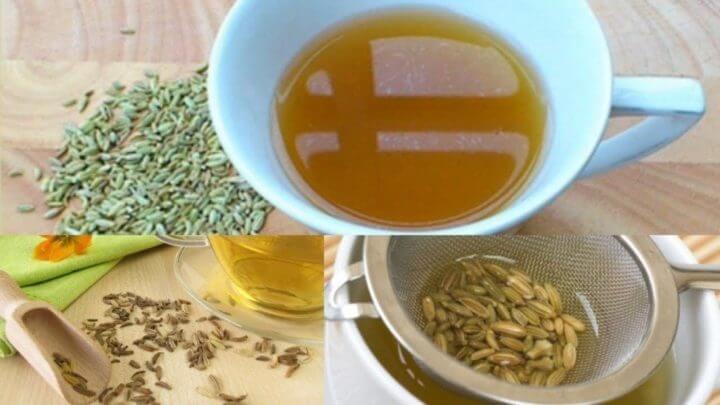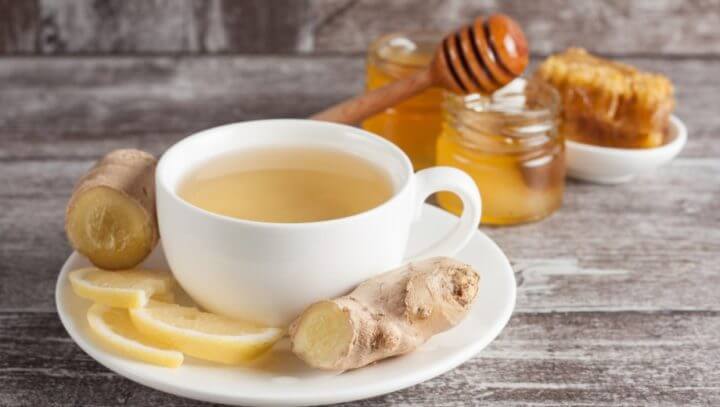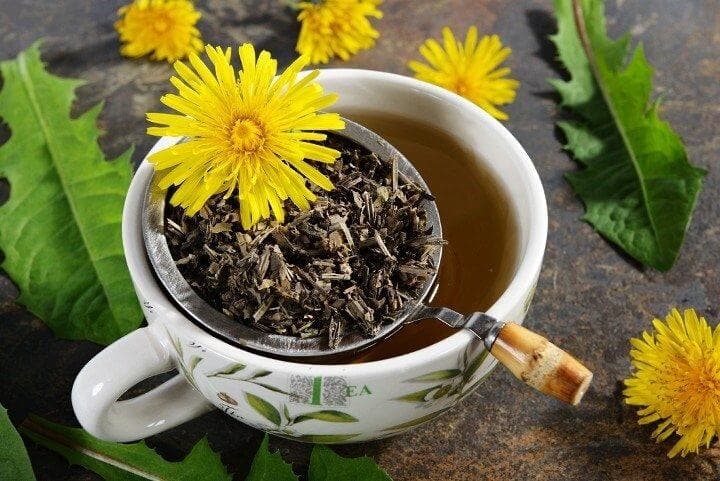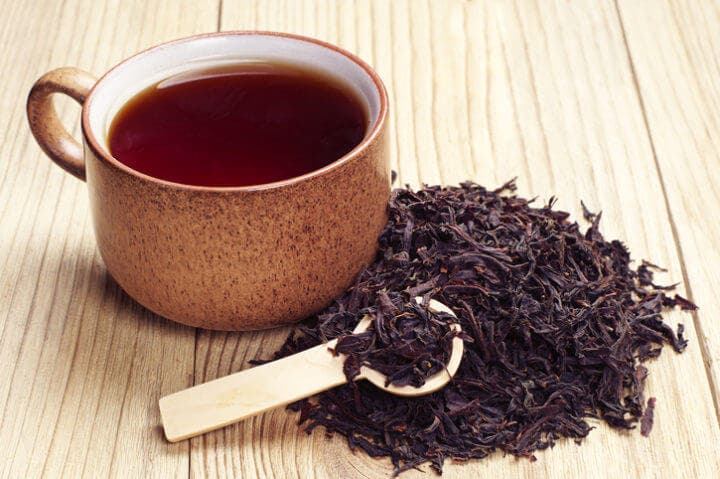For hundreds of years, people have used different types of beverages as medicine to cure certain types of diseases. Over the years, we have moved forward and home remedies have been left a bit behind.
However, to this day, many doctors recommend various types of tea to help digestion run its natural course, as they think the medications are too strong for such everyday situations.
Fortunately, many of these drinks are worldwide known and easily accessible, being able to find them in the supermarket near your home. Therefore, we help you to know some types of tea that help improve digestion .

6 types of digestive tea
1. Mint tea
Peppermint leaves come from a plant called “peppermint” and it is known worldwide for its refreshing taste and its ability to calm even the most angry stomach.
To tell the truth, evidence has been found in studies showing that menthol, one of the components of peppermint, helps early improvement of some digestive problems (McKay and Blumberg, 2006). In addition, patients with irritable bowel syndrome (IBS) benefit from the calming effects of peppermint , as it reduces symptoms such as stomach pain and bloating.
A 4-week study of 57 people with IBS found that 75% of those who took peppermint oil capsules twice a day had an improvement in their symptoms compared to the other 38% who had only taken a placebo ( Cappello et al., 2007). However, the effects of peppermint tea have not been proven like peppermint oil, although it is supposed to have the same effects.
To make this delicious tea, you just have to steep a mint tea bag in a cup of boiled water for 10 minutes.

2. Fennel tea
Fennel is an herb derived from a plant scientifically called “Foeniculum vulgare”. It can be consumed in two ways: cooked or raw, and due to its composition it can prevent stomach ulcers . It is believed that it possesses this ability due to its antioxidants that can fight against the damage associated with the development of ulcers.
In a study of 86 adults with constipation, it was found that those who drank fennel tea daily for 28 days had greater stomach movements than those who received a placebo. In other words, fennel has the potential to be used as a laxative (Bub, Brinckmann, Cicconetti and Valentine, 2006).
To prepare this infusion you just have to mix a cup of boiled water with 1 teaspoon or 4 grams of fennel seeds, let it rest for 5-10 minutes and filter it and then consume it.

3. Ginger tea
Ginger is native to the Asian area and its rhizome (its underground stem) is used worldwide as a spice.
Components in ginger can help stimulate stomach contractions, and the spice in it helps with some unsightly symptoms like nausea, cramps, bloating, and indigestion. What’s more, a large study found that taking 1.5 grams of ginger daily reduces nausea and vomiting caused by pregnancy, chemotherapy, and movement (Bodagh, Maleki, & Hekmatdoost, 2018).
To make ginger tea you just have to boil 2 tablespoons of thinly sliced ginger in 2 cups of water for about 10-20 minutes, then filter it and consume it. You can also buy the ginger tea bag if it is more convenient for you.

4. Dandelion tea
A study in rats has shown that dandelion extract helps protect against stomach ulcers; In addition, it decreases the production of stomach acid. (Yang et al., 2017). In this way, we can affirm that drinking dandelion tea increases stomach stimulation , although research on this is limited.
If you want to drink a little, you just have to combine 2 cups of dandelion flowers in 4 cups of water, bring the mixture to a boil and let it rest for 5-10 minutes before filtering it to consume it.

5. Black tea
Black tea comes from a plant called “Camellia sinensis” and is usually mixed with other varieties of tea in the most recognized brands.
It includes some benefits, such as an improvement in indigestion and protection against stomach ulcers. According to a study carried out in mice, black tea extract produces an improvement in gastric expulsion caused by different medications (Murad and Abdallah, 2014).
If you want to try a little of this tea, you just have to buy the tea bags, or use loose black leaves for a more natural infusion.

6. Senna tea
Senna tea comes from a plant native to India, Pakistan and China that is used for cases of constipation and digestion problems. It contains certain chemicals called sennosides , which are capable of causing a soothing sensation in the colon.
Studies carried out in this regard show that senna is highly effective as a natural laxative in children and adults with constipation (Santos-Jasso, Arredondo-García, Maza-Vallejos and Lezama-Del Valle, 2017). However, although it has great benefits and effectiveness in finding a solution to constipation, it is not recommended to drink it when you suffer from diarrhea, as it will only make things worse.
You can create this tea by simply mixing a teaspoon of dried senna leaves in 1 cup of boiled water for 5-10 minutes and then filtering it to later consume it, although you can probably also find senna tea bags in your supermarket. near.
References
- Bodagh, MN, Maleki, I. and Hekmatdoost, A. (2018). Ginger in gastrointestinal disorders: A systematic review of clinical trials. Food Science and Nutrition . doi: 10.1002 / fsn3.807
- Bub, S., Brinckmann, J., Cicconetti, G. and Valentine, B. (2006). Efficacy of an herbal dietary supplement (Smooth Move) in the management of constipation in nursing home residents: A randomized, double-blind, placebo-controlled study. Journal of the American Medical Directors Association . doi: 10.1016 / j.jamda.2006.06.001
- Cappello, G., Spezzaferro, M., Grossi, L., Manzoli, L. and Marzio, L. (2007). Peppermint oil (Mintoil) in the treatment of irritable bowel syndrome: a prospective double blind placebo-controlled randomized trial. Digestive and liver disease: official journal of the Italian Society of Gastroenterology and the Italian Association for the Study of the Liver. doi: 10.1016 / j.dld.2007.02.006
- McKay, DL and Blumberg, JB (2006). A review of the bioactivity and potential health benefits of peppermint tea (Mentha piperita L.). Phytotherapy research: PTR. doi: 10.1002 / ptr.1936
- Murad, HA and Abdallah, HM (2014). Black tea extract and its thearubigins relieve the sildenafil-induced delayed gut motility in mice: a possible role of nitric oxide. Phytotherapy research: PTR. doi: 10.1002 / ptr.5183
- Santos-Jasso, KA, Arredondo-García, JL, Maza-Vallejos, J. and Lezama-Del Valle, P. (2017). Effectiveness of senna vs polyethylene glycol as laxative therapy in children with constipation related to anorectal malformation. Journal of pediatric surgery. doi: 10.1016 / j.jpedsurg.2016.10.021
- Yang, HJ, Kim, MJ, Kwon, DY, Kang, ES, Kang, S. and Park, S. (2017). Gastroprotective actions of Taraxacum coreanum Nakai water extracts in ethanol-induced rat models of acute and chronic gastritis. Journal of ethnopharmacology. doi: 10.1016 / j.jep.2017.06.045
